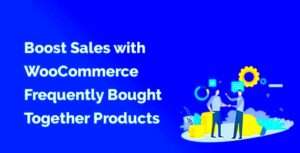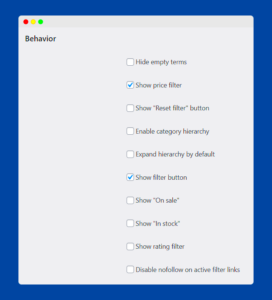When it comes to selling digital products online, the platform you choose can make all the difference. Two popular options are WooCommerce and Etsy, each offering unique features and benefits. In this article, we’ll delve into the nuances of both WooCommerce and Etsy, helping you make an informed decision that aligns with your business needs and goals. Whether you’re an established seller or just starting out, we’ve got you covered!
Overview of WooCommerce
WooCommerce isn’t just a plugin; it’s a powerful eCommerce solution for WordPress users. Designed to turn any WordPress website into an online store, WooCommerce allows you to sell physical, digital, and even affiliate products. Here’s a closer look at what makes WooCommerce an attractive option for those looking to sell digital products:
- Customizability: With a plethora of themes and plugins, you can tailor your store to meet your specific needs. This flexibility enables you to create a unique shopping experience for your customers.
- Full Control: Since you own your website, you have complete control over your store, from branding to customer data. This is a huge plus for businesses that want to establish a unique identity.
- Cost-Effectiveness: WooCommerce itself is free to use, although additional costs may arise from hosting, premium themes, and plugins. This can be a more budget-friendly option in the long run.
- SEO Benefits: Being part of the WordPress ecosystem means you can take advantage of powerful SEO features, helping your products get noticed in search engines.
- Scalability: WooCommerce can grow with your business. Whether you’re selling a few items or thousands, it can handle varying levels of traffic and inventory.
In summary, WooCommerce provides a robust platform with customizable options, full control over your business, and the scalability needed for growth. This makes it an excellent choice for those serious about establishing a strong online presence.
Overview of Etsy
Etsy is a globally recognized online marketplace that specializes in handmade, vintage, and unique goods. Established in 2005, the platform has positioned itself as the go-to destination for artisans, crafters, and vintage enthusiasts looking to sell their creations. With millions of active buyers, Etsy offers a vibrant community that nurtures creativity and personal expression.
One of the standout features of Etsy is its focus on artisan products, which means that you’ll find a plethora of one-of-a-kind items, from jewelry to home décor, clothing to art. This unique selling proposition attracts shoppers who value individuality and are often willing to pay a premium for handmade or rare products.
So, what makes Etsy particularly appealing? Here are some highlights:
- User-Friendly Interface: Etsy’s platform is designed for ease of use, making it straightforward for sellers to set up their shops without any technical expertise.
- Built-In Audience: With a large existing customer base, sellers can benefit from built-in traffic, reducing the need for extensive marketing efforts.
- Trust and Security: Etsy is a well-established platform known for its safety measures, giving buyers confidence in their purchases.
- SEO Benefits: Etsy’s search capabilities help sellers rank their products in search result pages, increasing visibility.
While the platform excels in its niche, it’s important to recognize its limitations. For example, Etsy charges listing fees and takes a commission on sales, which can impact profit margins. Overall, Etsy serves as a wonderful launchpad for creators looking to share their work with the world.
Comparison of Features
When considering where to set up your online shop, it’s crucial to examine the features offered by both WooCommerce and Etsy. This will help you determine which platform aligns best with your business needs. Here’s a side-by-side comparison of some key features:
| Feature | Etsy | WooCommerce |
|---|---|---|
| Customization | Limited; templates available | Highly customizable with themes and plugins |
| Fees | Listing fees + transaction fees | No direct fees; hosting costs apply |
| Marketing Tools | Basic; include promoted listings | Advanced; integrated SEO and analytics tools |
| Payment Options | Etsy Payments, PayPal, credit cards | Numerous options based on payment gateways |
| Ownership Control | Limited control, Etsy owns the marketplace | 100% ownership of your website and data |
As you can see, both platforms have their own set of advantages and drawbacks. Etsy offers a straightforward solution for those who prefer a hassle-free set up and access to a built-in audience. Meanwhile, WooCommerce provides ample flexibility and ownership for those willing to invest time into building their storefront. Ultimately, your choice should reflect your business goals and personal preferences.
Pricing and Fees
When it comes to choosing between WooCommerce and Etsy, understanding the pricing and fees associated with each platform is crucial. Let’s break down the costs involved in both options:
| Criteria | WooCommerce | Etsy |
|---|---|---|
| Transaction Fees | No transaction fees if using a self-hosted solution. Payment processor fees apply. | 5% transaction fee on each sale. |
| Listing Fees | Free to list products; however, there may be hosting fees. | $0.20 per listing, renewed every four months. |
| Monthly Subscription | No monthly fees for the core plugin. Potential costs for themes/plugins. | No monthly subscription, but fees apply for optional promotions. |
| Payment Processing Fees | Varies by payment provider (credit card, PayPal, etc.). | 3% payment processing fee via Etsy Payments. |
In summary, WooCommerce offers greater flexibility in terms of transaction fees as you have the option to manage your payments, which might save you money in the long term. Meanwhile, Etsy’s straightforward fees might appeal to those looking for simplicity. Keep in mind your business needs and choose a platform that aligns with your budget and growth plans!
Customization and Control
When it comes to customization and control, WooCommerce and Etsy take very different approaches. Let’s dive into what each platform offers.
- WooCommerce:
As a WordPress plugin, WooCommerce is all about flexibility. You can customize nearly every aspect of your online store. With countless themes and plugins available, you can create a unique storefront that reflects your brand. Additionally:
- You can add custom features through coding or using various plugins.
- Control your inventory management, shipping methods, and taxes according to your business model.
- Personalize checkout pages, product pages, and customer experience completely.
- Etsy:
Etsy, on the other hand, is more of a marketplace than a customizable platform. Your level of control is limited because:
- The design templates are pre-set, and you have little room for customization.
- You must abide by Etsy’s rules and guidelines, which can limit how you market your products.
- While you can create a shop banner and logo, the overall shop appearance is uniform with Etsy’s design aesthetic.
In conclusion, if customization and control are top priorities for you, WooCommerce is likely the way to go. It allows you to tailor your online store to your unique vision. Conversely, if you prefer a more straightforward approach and are okay with limited customization, Etsy might suit your needs better. Think about what’s most important for your business and make the choice that fits you best!
7. Target Audience and Marketing
When it comes to choosing between WooCommerce and Etsy for your digital products, understanding your target audience is crucial. Each platform attracts a distinct user base, which can significantly influence your marketing strategies.
Etsy is primarily a marketplace for handmade, vintage, and craft items, making it a haven for DIY enthusiasts and shoppers looking for unique products. If your digital products align with this creative ethos—think digital art, printable planners, or craft templates—Etsy might be the ideal platform. Its community-driven vibe means that buyers are often looking for personalized and artistic offerings, so you can really hone in on those qualities in your marketing material.
On the other hand, WooCommerce opens up a world of possibilities for those who want more control over their branding. As a WordPress plugin, it allows you to create a personalized online store tailored specifically to your products. This flexibility means you can target a broader audience, from casual shoppers to serious consumers, depending on how you position your brand through SEO, content marketing, and social media. In fact, using WooCommerce allows you to integrate various marketing tools, such as email campaigns and affiliate marketing, making it easier to reach your desired audience.
Marketing Strategies:
- Utilize social media platforms: Etsy has built-in social sharing features, while WooCommerce allows for extensive customization with sharing buttons and plugins.
- Consider SEO practices: WooCommerce provides more tools for optimizing your site for search engines compared to Etsy’s more straightforward optimization.
- Engage with your audience: Use email marketing for WooCommerce to build relationships, while Etsy relies on its marketplace engagement.
8. Ease of Use and Setup
When diving into the technical aspects of setting up your online store, the ease of use can heavily impact your experience and success. Let’s explore how WooCommerce and Etsy stack up in this department.
Etsy is known for its user-friendly interface. If you’re not tech-savvy or simply want a straightforward experience, Etsy’s platform is designed for ease. Signing up for an Etsy account is quick, and listing your digital products takes just a few minutes. The built-in features streamline the process, allowing you to start selling almost immediately. Plus, Etsy handles payment processing and customer service questions, which can substantially reduce the administrative load on sellers. This makes it an attractive option for those who just want to get their products out there without diving deep into website management.
In contrast, WooCommerce offers an extensive array of options, which can be both a blessing and a curse. Setting up a WooCommerce store requires a bit more initial effort, as you’ll need to have your own WordPress site and manage hosting services. However, once you get the hang of it, WooCommerce is incredibly powerful. You have full control over customization, inventory management, and styling your store. This flexibility means you can create a highly tailored shopping experience but might necessitate a steeper learning curve for those unfamiliar with WordPress or e-commerce.
Ease of Use Comparison:
| Feature | Etsy | WooCommerce |
|---|---|---|
| Initial Setup | Quick and simple | More complex, requires WordPress setup |
| Customization | Limited options | Extensive, highly customizable |
| Management | Etsy handles payments and support | Full control, but requires more management |
| Technical Skills Required | Minimal | Moderate to advanced |
Ultimately, your choice may come down to your comfort with technology and how much control you want over your brand’s online presence.
SEO and Visibility
When considering a platform for selling your digital products, SEO (Search Engine Optimization) and visibility are two critical factors you can’t overlook. Both WooCommerce and Etsy have distinct approaches to SEO, and understanding these differences can significantly impact your online store’s success.
WooCommerce, being a WordPress plugin, offers extensive flexibility when it comes to optimizing your site for search engines. With WooCommerce, you have complete control over your website structure, allowing you to:
- Customize URLs: Create SEO-friendly URLs that reflect your product names, which can help improve click-through rates.
- Utilize Plugins: Leverage powerful SEO plugins like Yoast SEO to optimize your content, generate sitemaps, and enhance meta tags.
- Optimize Page Speed: Fine-tune your website for speed, which is crucial for improving search rankings.
- Content Marketing: Easily integrate a blog on your site to boost traffic and engagement through valuable content.
On the flip side, Etsy is a marketplace with built-in traffic, but its SEO operates differently. Your products compete not only with similar listings but also with Etsy’s algorithm. Here’s what you should consider:
- Pillars of Etsy SEO: Factors like keywords in titles and tags, customer reviews, and listing quality play a significant role in visibility.
- Marketplace Traffic: Etsy brings visitors directly to its platform, which can increase your product’s potential for visibility without needing extensive SEO efforts.
In summary, if you prioritize complete control over your SEO efforts and want to build a robust online presence, WooCommerce might be your best bet. However, if you prefer a platform with built-in traffic and you’re willing to work within its constraints, Etsy could serve your needs well.
Customer Support and Community
When setting up and managing your online store, the availability of customer support and a vibrant community can make all the difference. Both WooCommerce and Etsy offer unique experiences in this regard, tailored to their different business models.
With WooCommerce, the level of customer support can vary significantly based on how you’ve set up your website:
- Self-Hosted Setup: If you’re running WooCommerce on your hosting service, the first line of support often comes from your web host. This means you need to choose a reliable hosting provider for efficient support.
- Documentation and Community Forums: WooCommerce has an extensive library of documentation and active community forums where you can find answers or share experiences.
- Plugins and Themes: Since WooCommerce supports numerous plugins and themes, the customer support may vary across different developers.
In contrast, Etsy provides a more centralized customer support system:
- Direct Support: Etsy has a dedicated help center and a support ticket system to handle inquiries, making it easier for sellers to get help.
- Community Forums: Etsy has its forums where sellers can connect, share tips, and troubleshoot common issues. This strong sense of community can be encouraging, especially for newbies.
- Seller Handbook: Etsy offers a comprehensive Seller Handbook that includes topics ranging from marketing to product photography, which can be invaluable as you grow your online store.
Ultimately, if you prefer a streamlined solution where support is readily available, Etsy might suit you better. However, if you thrive in a more hands-on environment that lets you dive deep into learning while leveraging community resources, WooCommerce could be right for you.
Case Studies and Success Stories
When exploring the world of eCommerce, it helps to look at those who have walked the path before you. Let’s dive into some inspiring case studies that showcase the successes of both WooCommerce and Etsy users. Each platform caters to different types of sellers, and understanding these stories can illuminate the best choice for your business.
WooCommerce Success Example:
Consider the story of a small business called “EcoChic,” which focuses on sustainable and eco-friendly clothing. By using WooCommerce, EcoChic was able to fully customize their online store, which allowed them to reflect their brand’s ethos effectively. With integrations for various payment gateways and plugins for SEO and marketing, within a year, EcoChic tripled their revenue and expanded their product line significantly. They found that having complete control over their website led to better customer relationships and a loyal following.
Etsy Success Example:
On the flip side, let’s look at “Crafty Candles,” an artisan candle maker who found their niche on Etsy. Initially, Crafty Candles struggled to gain traction on their website, but once they moved to Etsy, their sales skyrocketed. Etsy’s built-in audience and search functionality helped them reach customers actively seeking handmade products. Within months, their customer base grew, allowing them to gain a solid understanding of their target market while also learning to optimize listings for better visibility.
These case studies illustrate that both WooCommerce and Etsy can lead to significant success, but aligning your choice with your business model and target audience is crucial. Whether you seek customization and branding or a platform with a built-in audience, both paths have proven fruitful for various entrepreneurs.
Conclusion and Recommendations
Wrapping up the comparison between WooCommerce and Etsy, it’s clear that each platform offers unique advantages tailored to different types of businesses. The best choice depends largely on your personal goals, needs, and the nature of your products. Let’s break it down.
If you choose WooCommerce:
- Full Customization: If you want complete control over your branding and customer experience, WooCommerce is your best bet.
- Scalability: Ideal for businesses planning to scale, as you can expand your product lines and features as needed.
- SEO Benefits: Great for those looking to invest in long-term marketing efforts through their own website.
If you choose Etsy:
- Built-in Audience: If you’re just starting and want access to an existing customer base, Etsy is a great option.
- Ease of Use: Perfect for sellers who prefer a straightforward setup without the technical aspects of managing a separate website.
- Community Support: Being a part of the Etsy community allows you to connect with other sellers and learn from shared experiences.
Ultimately, the decision should be based on the specific needs of your business, including your product type, technical comfort level, and growth aspirations. Whichever platform you choose, the success stories prove that with the right strategy and passion, you can create a thriving online business.



